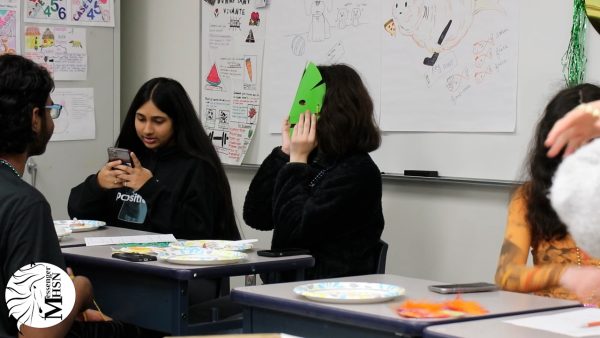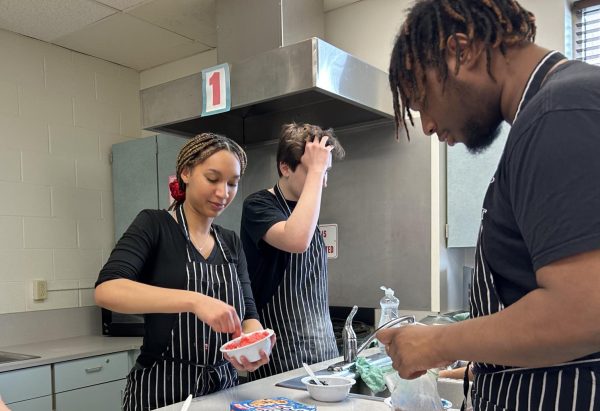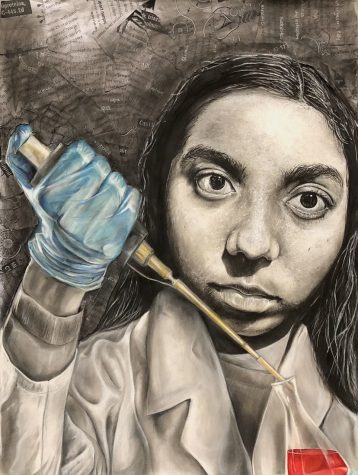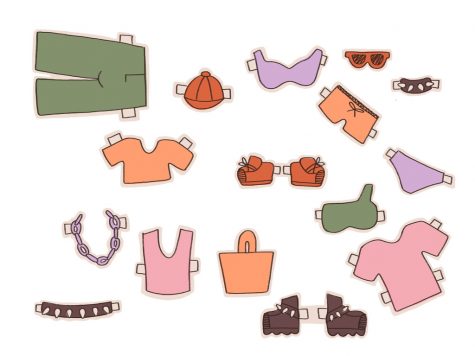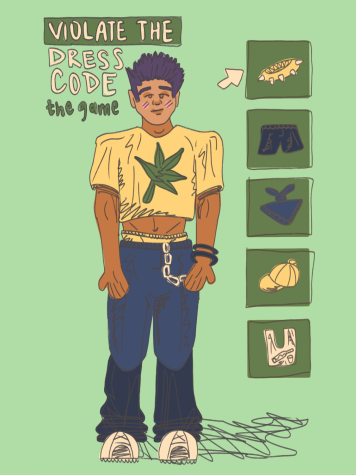Depop Offers Student Income During Quarantine
Media by Rachel Steurer
Different outfits Steurer has either bought, sold, or created for Depop.
Off work due to COVID-19, Rachel Steurer, junior, finds an alternative to receive a consistent income during quarantine.
For Steurer, making money involves Depop after formerly working at The Wolf Cafe. Depop, a social media community platform, allows to buy and sell clothing from other users and has become increasingly popular among teens.
“Some resell things they don’t wear anymore, like just your basic closet items, and some sell original, vintage or rare items,” Steurer said. “So there’s really anything you could need all in one place.”
Steurer takes classes at St. Louis Community College – Wildwood currently, but wanted a source of income for future college savings.
She was first introduced to Depop about a year ago and started only as a buyer. However, more recently she decided to make a change for herself by selling some of her own items.
Finding inspiration in a lot of styles, she continues to learn more about upcoming trends by following streetwear and vintage clothing.
The stores that Steurer returns to the most are Urban Outfitters and Savers, spending only as much as the item strikes her. She enjoys splurging sometimes on select pieces if they mean something to her. Before quarantine, Steurer accumulated a stash of clothes with which she continues to organize for her page.
After selecting items, Steurer makes alterations to her clothing looking for any holes, imperfections or ways to add creativity.
“My grandma taught me how to hand sew and machine sew when I was younger,” Steurer said. “I learned everything I needed to get me started from her.”
One of her favorite pieces she created combined some bandana patterned fabric and a pair of elastic pants.
Steurer said Depop has allowed her to continue buying her normal necessities while off work in addition to exploring her creative side with fashion.
Outside of Depop, thousands of online markets like Amazon are thriving with new stay-at-home conditions consumers have to endure.
Scott Galloway, NYU Stern School of Business marketing professor, encourages students to also take part in online selling platforms.
“Online selling platforms like Depop are not benefiting the economy right now, they are the economy,” Galloway said.
Galloway said while about 3 million people have filed for unemployment, Amazon is currently hiring 100,000 new employees.
Social selling, or social media based markets, are central to current online shopping. It is creating a commonplace with brands, personalities and politics that wouldn’t have been possible long ago he said.
Teens are able to attract major brands now and promote them under their specific niche.
He’s not surprised an increasing number of teens are finding themselves on selling platforms like Depop due to the matter of growing up alongside social media. Depop creates a community lacking in other online markets.
“[Consumers] want to be told by someone attractive what is the best thing to buy,” Galloway said. “Depop has figured this out by meshing the product and personality in one shopping experience.”
Depop, specifically, is becoming an innovation to the area of digital shopping by knocking out past flaws of the modern consumer.
Galloway motivates students to be active in the economy during COVID-19 as it can be easy to hide behind a screen, but he says the younger generation can instead use technology to advocate for themselves.
Steurer continues to update her profile with items exhibiting her personality and choice.
She pushes others to follow suit by continuing to actively contribute to the economy instead of holding back. She said it’s important to support digital businesses during COVID-19 because it creates awareness for the functionality of platforms like Depop.
“I think it’s really helpful for students to have jobs in high school,” Steurer said. “It’s important to understand the responsibility of having your own money and supporting the businesses around you.”
Your donation will support the student journalists of Marquette High School. Your contribution will allow us to purchase equipment and cover our annual website hosting costs. You may become a PATRON by making a donation at one of these levels: White/$30, Green/$50, Blue/$100. Patron names will be published in the print newsmagazine, on the website and once per quarter on our social media accounts.

Mason Kellerman (he/him), senior, is the Illustrator and Web Designer for the Marquette Messenger. This will be his third year on staff. Mason is president...




